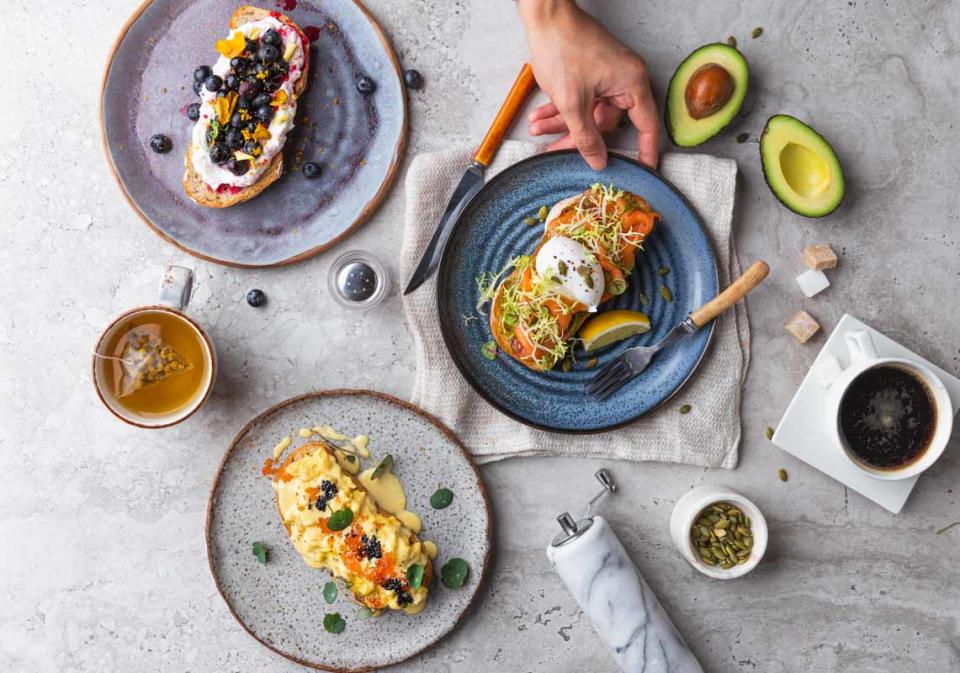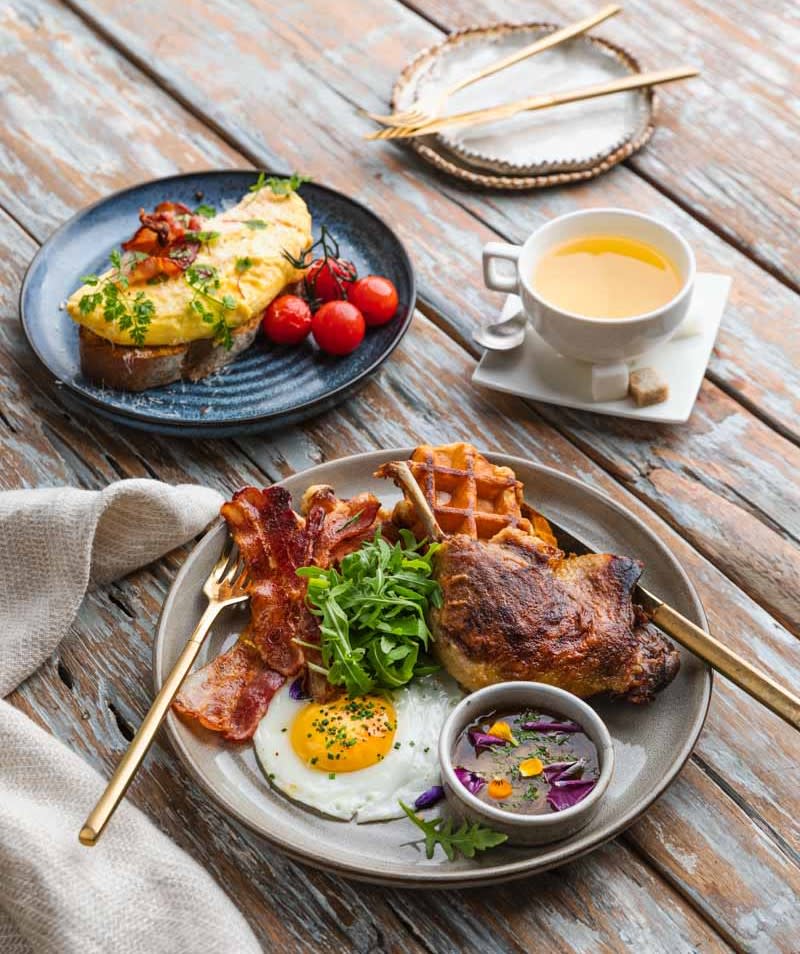INTERVIEW: Chef Joshua Khoo says 'being a good chef is not merely about fame'

SINGAPORE — Research for this profile is made nearly impossible as I struggle to find dedicated interview pieces of Chef Joshua Khoo that don’t involve either Saveur or his former chef-partner, Chef Dylan, in the mix. The one article I found that comes close is this rather bizarre piece by The Straits Times that asks Dylan what his thoughts on Joshua were, complete with a picture of them and their romantic partners as the hero image.
I wonder about this lack of renown, which, given my role, makes me all the more curious. But after speaking to him, I start to understand the gap. Joshua is a person for whom down-to-earth and unassuming makes for accurate monikers. There is absolutely no air about him, and he's not ashamed to admit his flaws—"I know my foundation needs to be better. I'm always learning, even up till today." He's more than happy to regale me with stories of his purported F&B miscarriages simply because he is proud to have gone through that and come out stronger.
READ MORE:
REVIEW: The food at Mag’s Wine Kitchen is fabulously simple, dependable, and comforting
INTERVIEW: At 45, Andrew Yap found success with The Old Man Singapore
REVIEW: At Allium, food exists as a celebration of technique, flavour, and produce
Zatiman Astha: Why did you and Chef Dylan decide to leave Saveur in 2017?
Chef Joshua Khoo: We’ve had several disagreements with the business partners involved. But in the end, we simply do not align in the decision of running the business. For our investor and mentor, his area of expertise is in business whereas, for Dylan and I, ours is in running the kitchen. We couldn’t find a way to make both aspects within the company work, so we thought it’s best to part ways. Of course, we didn’t just abandon the restaurant. We made sure there was a capable chef on board who would continue cooking and developing the restaurant. When we left, both Dylan and I already had plans of our own—Dylan with The Masses, while I decided to pursue a hawker career.
What was your hawker endeavour about?
I started Taste Affair at Amoy Street Food Centre, selling staple European cuisines such as pasta and rice. I wanted to try selling staple food because my personality is still very much down-to-earth, and this reflects in the kind of dishes I make—the type that can be enjoyed by the masses. My partner and I tried it for one year, with good reviews and feedback. But we closed because one of my ex-partners used to be a banker and the type of income one can earn from selling hawker food is incomparable from that of someone in the finance industry. Growth is also minimal because of tight government controls pertaining to hiring and opening hours. The possibility is there, but it’s not easy.
After Taste Affair closed down, the boss of Minor Food Group, Dellen, approached me to head their new brand, Poulet+.
I suppose your life has been blessed by many types of ‘Dylan-s’.
A lot of Dylan-s. *laughs*

What was your childhood like growing up?
I grew up in Yishun, and I remember I was very interested and involved in sports. There was a lot of basketball, running, gym and work. I started work in the F&B industry when I was 14 at KFC. Then, I just wanted money to buy the things I wanted. After that, I worked at Yishun Seafood near Sembawang and was paid $7 an hour, which was not bad for that time. From there, I learned how to do front of house and service before I was asked to try out in the kitchen where I was taught to make dishes like chilli crab. I was only 16 then.
How did you start in the culinary industry?
I went to Ngee Ann poly to study Engineering Informatics. But I was not interested, so I decided to drop out without my mum’s knowledge. When I told her I wanted to pursue a culinary education, she said no, and that I should go to army first and if I still wanted to pursue that route, then it’s up to me.

What was your fondest memory of food?
After I finished National Service, I went to Australia to find work where I found a job at Tetsuya. I loved his trout confit to the point where I brought the recipe over to Singapore and served it at Saveur. Of course, daily, I still prefer hawker food, lah. I can eat Mee Tai Mak every day. (laughs)
What do you think is the most significant difference between the landscape of food in the past when you opened Saveur versus how it is now?
Everyone is very creative now—there’s a lot of boundaries being pushed. It confuses me sometimes. When Saveur first opened, we were known as serving French food for the masses. But now, there’s Italian-French, Japanese-French. I mean, it’s a good thing. Still, it’s also very competitive with everyone trying to make something even newer than the next person. I worry that sometimes, we lose the root and direction of what is it that we want to do.

What does a perfect dish look like to you?
The taste must be delicious, be visually enticing, have a multitude of textures, worth the price, and be value for money.
But value for money is a very selective right? I mean, what’s value for money for me, might not be value for money for you.
That’s where the other four aspects of what a perfect dish look like come in. Because your requirement of value for money is undoubtedly different from mine. The measure of the finesse of food, at least for me, is based on those other four elements and those are quite universal in its standards.
When you look at the state of food in Singapore today, what is the one thing that gives you hope?
We are too overcrowded with food. That’s why my approach has always been, do I make new dishes, or should we make things better? This is my struggle. Another thing that irks me is how so many Singaporeans want to be a celebrity chef without putting in the hard work. They chase after the glamour of the lifestyle. But being a good chef is actually about helping other people, working hard, and knowing your foundation very well. Once you become more known, then the work begins because now you have to protect your name and brand. It’s not merely about fame.


